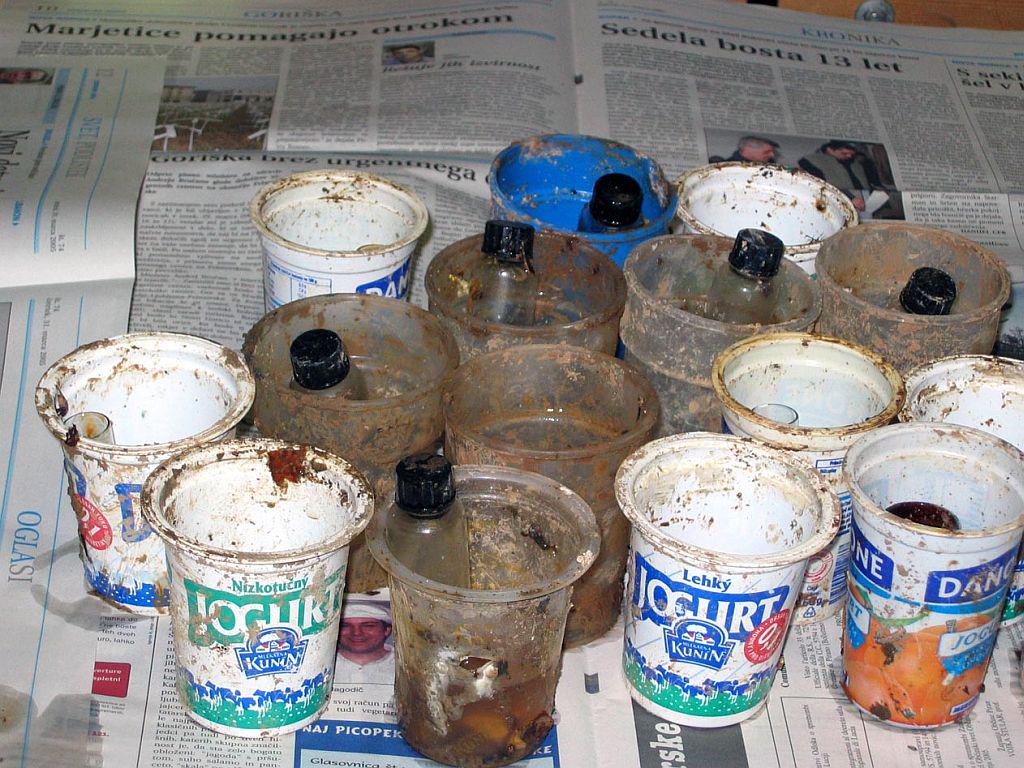
At the start of September police officers from Kozina, in cooperation with local speleologists, conducted a search in one of the easily accessible caves in Čičarija and discovered seven beetle traps inside the cave.
Mina Dobravc from the Nature Conservation Institute explained that there is legislation protecting cave beetles (it is forbidden to hurt, poison, kill, take from the wild, hunt or capture cave beetles), but that illegal traps are still being set. "That’s why in the last two years we’ve connected with the police, the inspectors, speleologists, and experts from the faculty, and started carrying out joint measures – everyone in his own field. At the same time we actively communicate with each other, exchanging knowledge and experience. We have agreed on a system of measures, have conducted searches in some of the (potential) caves, presented the issue to the locals and cooperated with the media," she explained the organized surveillance and monitoring of what was happening in and around the caves.
And the result? "In 12 caves we have found 154 traps. The inspection office and police have monitored some of the caves in 2017. We haven’t caught any of the perpetrators year, but on the basis of the found traps and other remains in the caves (thrown away packaging), we can conclude that we’re also dealing with foreigners, who set traps in our caves."
On the bases of vehicle registration plates noticed by locals near the caves, and thrown away packaging found in the caves, the institute judges that "they are collectors and dealers from Italy, the Czech Republic, Austria, Germany ..." And what do they do with the beetles? Dobravc explains that they suspect the beetles are being sold on black markets for beetles. She rejected hints that the beetles can reach prices of several thousands of euros: "The price of individual cave beetles reaches values from tens of euros to a couple of hundred euros."
The popular Anophthalmus hitleri
The most sought beetle is the Anophthalmus hitleri, an endemic protected Slovenian beetle, first discovered by a Slovenian naturalist Vladimir Kodrič in the first half of the 20th century. He then sold the beetle to a collector called Oscar Scheibel, who then named it Anophthalmus hitleri in honour of Adolf Hitler. The beetle has kept its scientific name until this very day, and will still carry that name in the future, as according to the tradition of taxonomy the valid name is the one which was first in use.

































































